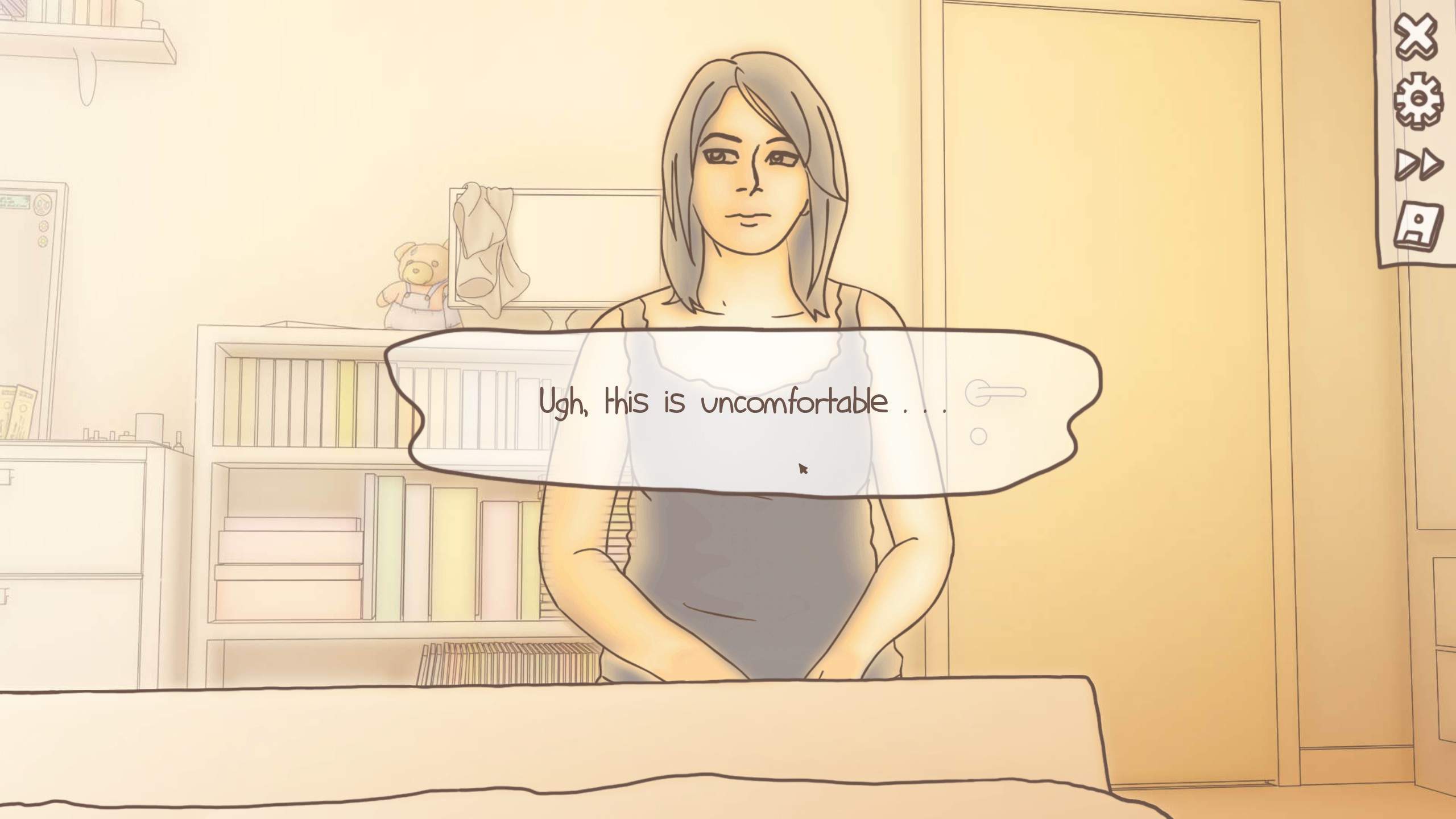
Recreations of sex and relationships in our games are usually extremes. They either show the raunchy side like Geralt and his friends in the Witcher 3, their sculpted bodies humping with unprecedented stamina, or the blissful innocence of hand-holding for those of us who are more sentimental.
Given how much people think about food, sex and money in real life, these subjects haven’t really been discussed in a substantial way in our games. One Night Stand is a short visual novel that tries to sit somewhere between the two, offering a more realistic insight into the messy world of relationships.
Lucy Blundell’s game starts with you waking up feeling hazy and confused while you try and reach for the annoying, buzzing mobile phone on the bedside table. This is the beginning of a mystery, as you soon figure out you’re not in your own bedroom at home but in someone else’s bed, hence the title of the game.
Our nameless character has a terrible hangover. We quickly learn through texts from our friend Gary that we abandoned him last night before making our way home with the mysterious lady sleeping next to us. The revelation then turns to further mystery as she throws the duvet over us and heads out of the room. The intrigue continues as we’re given choices of what we can look at in the room before the girl suddenly returns. And then the awkwardness begins.
The game has 12 different endings, each a result of how you decide to have the conversation with your new, nameless friend. What makes it difficult is whether or not you decide to bring up topics from your minor snooping activities. For example, who is the girl standing with in the framed photo next to the mirror? And what exactly are those pills sitting next to you on the bedside table? Oh, and what the heck is this girl’s name?!

One Night Stand. Credit: Kinmoku
We never see any form of intimacy, despite the game taking place the morning after the two characters hooked up. But this adds to the awkwardness of trying to connect with our female friend, making sure we’re polite and saying the right thing, and attempting to remember how we actually met.
The endings can vary from our friend reluctantly asking us to leave despite having a nice time the night before, throwing us out because we fudged the fact we can’t remember her name or agreeing to stay in touch, planting the seed for a potential friendship or relationship in the future.
But aren’t most games bad at conveying believable stories of relationships? It’s usually our own connection with the characters and pointing at the screen saying “oh, come on already!” that makes us think some games have portrayed friendships and relationships well. Games such as Ico, where we must save the helpless Yorda, or our friends Chloe and Warren in Life is Strange, help conjure up emotional connections that would be difficult to translate in real life, even without the fantasy elements of those games.
Other games tackle relationships with an end goal to begin a physical relationship of some kind with another character, such as the arcs found in the Mass Effect and Dragon Age series. Funnily enough, the best examples of the many complexities of relationships can be found in The Sims series. It’s here where we choose who our Sim characters talk to, how they decide to hang out and what interests they share and develop together. And, as the success of that series has shown, our own emotional investment and attachment to the characters builds with time too.

The Sims 4. Credit: EA Games
A recent, realistic gaming example of a relationship is found in Nina Freeman’s Cibele. Her partially autobiographical story lets us become friends with someone through an online multiplayer game, before things turn into a long-distance relationship and then, over time, we meet our romantic interest in the flesh. The game also uses the topic of technology in a mature, modern way that is often ignored in our stories.
Most games with romantic or sexual elements use dialogue options to change the direction of the conversation, but rarely the story itself, relying on the physical. One Night Stand is a unique example of a videogame showing that physical interactions aren’t always the ultimate goal towards building a lasting partnership, but rather the quiet, awkward conversations we have in getting to know one another. Sometimes words speak louder than actions. But you have to make sure you say the right thing.






